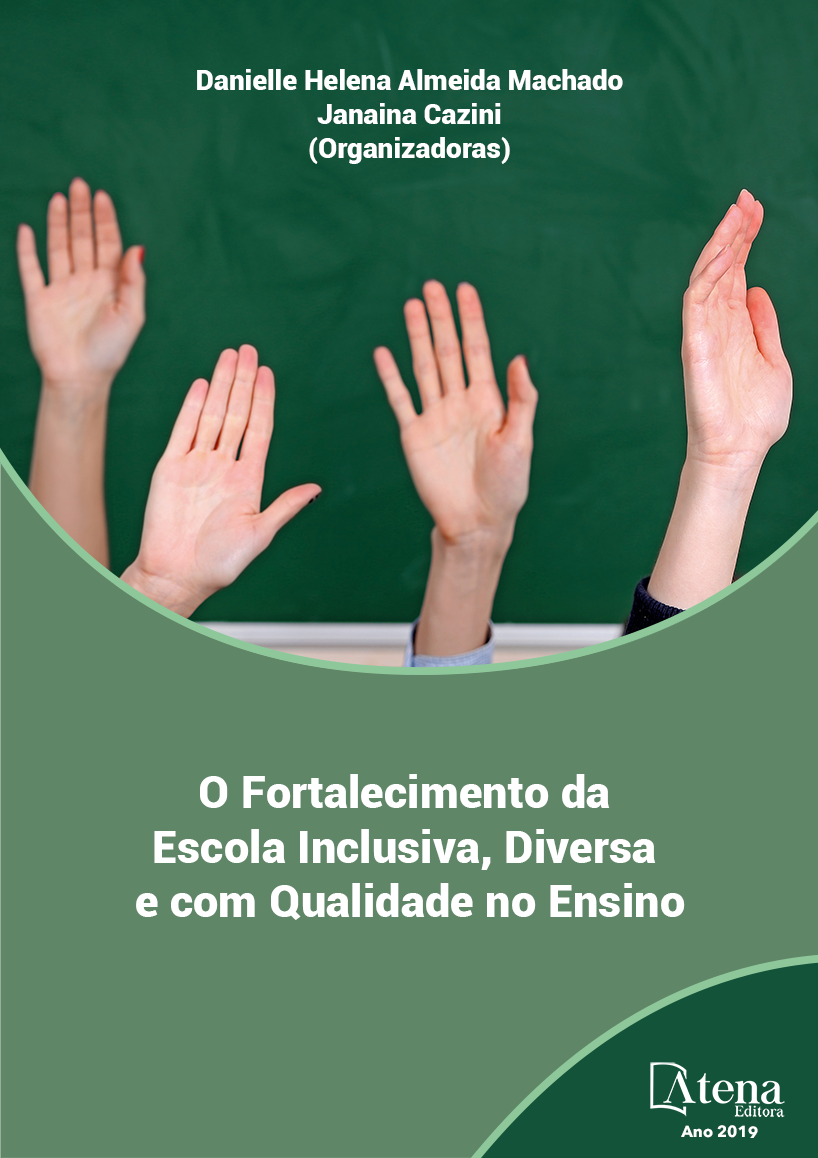
LITERATURA SURDA E O ENSINO DE LIBRAS: UM OLHAR PARA A CRIANÇA OUVINTE
O presente artigo versará sobre o
ensino de Libras, numa perspectiva inclusiva da
criança ouvinte por meio do suporte pedagógico
aqui utilizado, a Literatura Surda, difundindo um
olhar sobre o que é Libras e como é constituída
a língua natural do surdo. Nosso objetivo é
apresentar a Literatura Surda como suporte
pedagógico para o ensino de Libras a crianças
ouvintes, promovendo uma interação entre
crianças ouvintes e o sujeito surdo, por meio de
sua literatura. Nesta perspectiva, abordaremos
conceitos acerca da Literatura Surda e quais
os tipos existentes. Como aporte teórico, este
trabalho fundamenta-se a luz dos pensamentos
de STROBEL (2008), PERLIN (2004),
KARNOPP (2010), LABORIT (1994), MOURÃO
(2011) e GOLDFELD (1997). Neste viés, esta
pesquisa surgiu de uma coleta bibliográfica,
unida a uma intervenção pedagógica de caráter
observatório-interativo, para assim levantarmos
os dados relevantes para a efetivação e alcance
dos nossos objetivos, sendo este o ponto
alto da pesquisa, por meio desta intervenção,
pudemos perceber que a Literatura Surda pode
servir de ferramenta pedagógica para o ensino
de Libras, pois, esta torna-se uma maneira
lúdica, unindo teoria e prática, na qual envolveu
as crianças ouvintes que aprenderam brincando
e divertindo-se. Este instrumento pedagógico,
instigou nas crianças ouvintes, o desejo de
aprender um pouco mais sobre Libras, de
modo que, durante a intervenção foi perceptível
que os alunos ouvintes sentiram-se atraídos,
além da consciência prévia da importância de
aprender a Língua de Sinais, para promover
a comunicação e inserir o surdo no convívio
social.
LITERATURA SURDA E O ENSINO DE LIBRAS: UM OLHAR PARA A CRIANÇA OUVINTE
-
DOI: 10.22533/at.ed.04119030912
-
Palavras-chave: Libras. Criança Ouvinte. Literatura Surda.
-
Keywords: Pounds. Child Listener. Deaf Literature.
-
Abstract:
This article will deal with the teaching of Libras, in an inclusive
perspective of the child listener through the pedagogical support used here, the Deaf
Literature, spreading a look at what Libras is and how the natural language of the
deaf is constituted. Our objective is to present the Deaf Literature as a pedagogical
support for the teaching of Libras to hearing children, promoting an interaction between
hearing children and the deaf subject through their literature. From this perspective,
we will approach concepts about Deaf Literature and what types exist. As a theoretical
contribution, this work is based on the thoughts of STROBEL (2008), PERLIN (2004),
KARNOPP (2010), LABORIT (1994), MOURÃO (2011) and GOLDFELD (1997). In this
bias, this research arose from a bibliographical collection, together with a pedagogical
intervention of an observatory-interactive nature, in order to raise the relevant data
for the accomplishment and achievement of our objectives, being this the high point
of the research, through this intervention, we could perceive that the Deaf Literature
can serve as a pedagogical tool for the teaching of Libras, since it becomes a playful
way, uniting theory and practice, in which it involved the listening children who learned
playing and having fun. This pedagogical instrument instilled in the listening children
the desire to learn a little more about Pounds, so that during the intervention it was
noticeable that the listening students were attracted, besides the prior awareness of
the importance of learning the Sign Language, to promote communication and to insert
the deaf in social interaction.
-
Número de páginas: 15
- Aline de Fátima da Silva Araújo
- Jéssica da Silva Ramos
- Tamyres Soares Targino Muniz
- RAYLLA SAMARA PONTES DOS SANTOS


